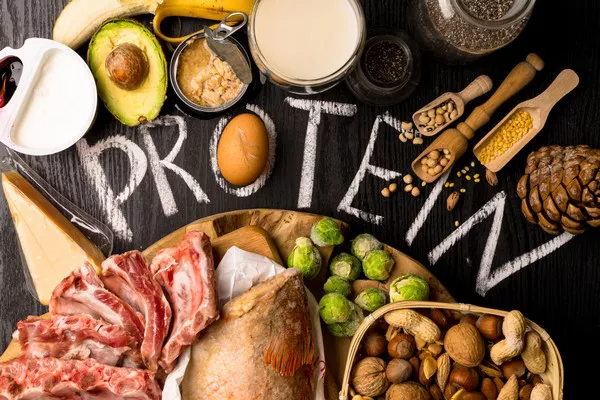Ensuring the optimal nutrition of toddlers is a priority for parents and caregivers, and understanding the specific dietary requirements for different age groups is crucial. At 18 months, children are rapidly growing and developing, making it essential to address their protein intake. In this article, we explore the importance of protein in the diet of an 18-month-old and provide guidance on meeting their nutritional needs.
Protein
Protein is a fundamental component of a child’s diet, playing a pivotal role in growth, tissue repair, and overall development. At 18 months, toddlers are in a critical phase of growth and require a well-balanced diet to support their expanding physical and cognitive abilities.
Recommended Protein Intake
The recommended dietary allowances (RDAs) for protein intake are established by reputable health organizations to guide parents and caregivers in providing adequate nutrition for children. According to the American Academy of Pediatrics (AAP), an 18-month-old child requires approximately 13 grams of protein per day. However, individual needs may vary based on factors such as weight, activity level, and overall health.
Sources of Protein
Meeting the protein needs of an 18-month-old involves incorporating a variety of protein-rich foods into their diet. Optimal protein sources for toddlers include:
1. Dairy Products:
Dairy is a primary source of protein for toddlers. Offer age-appropriate servings of milk, yogurt, and cheese to ensure they receive essential nutrients like calcium and vitamin D along with protein.
2. Lean Meats:
Introduce small portions of lean meats such as poultry, fish, and lean beef. These provide high-quality protein and essential nutrients like iron and zinc.
3. Legumes:
Beans, lentils, and peas are excellent plant-based protein sources. They also offer dietary fiber, promoting digestive health.
4. Eggs:
Eggs are a versatile protein option. Ensure they are fully cooked and cut into appropriate sizes for safe consumption.
5. Whole Grains:
Incorporate whole grains like quinoa, brown rice, and whole wheat into the diet. These grains contribute not only protein but also essential vitamins and minerals.
Tailoring Protein Intake to Individual Needs
While the recommended daily intake provides a general guideline, it’s essential to consider the unique characteristics of each child. Factors such as growth rate, weight, and activity level influence the ideal protein intake. Parents should monitor their child’s development and consult with healthcare professionals to ensure personalized nutritional recommendations.
Signs of Protein Deficiency
Recognizing signs of protein deficiency is crucial for addressing potential issues promptly. Common indicators include:
1. Slowed Growth:
Insufficient protein intake may lead to slowed or stunted growth in toddlers.
2. Fatigue:
Inadequate protein can contribute to fatigue and reduced energy levels in young children.
3. Impaired Immune Function:
Protein plays a vital role in immune function. Deficiency may result in increased susceptibility to infections.
4. Edema:
Swelling or edema, especially in the feet and ankles, can be a sign of protein deficiency.
Overcoming Challenges and Encouraging Healthy Eating Habits
Introducing diverse and nutritious foods during the toddler years can be challenging, as young children may display preferences and aversions. To overcome these challenges and promote healthy eating habits:
1. Be Patient and Persistent:
It may take several attempts before a child accepts a new food. Be patient and continue offering a variety of protein-rich options.
2. Lead by Example:
Children are more likely to try new foods when they see adults enjoying them. Set a positive example by incorporating a variety of foods into family meals.
3. Create a Positive Mealtime Environment:
Make mealtimes enjoyable by creating a positive atmosphere. Limit distractions and focus on the social aspect of sharing meals.
4. Offer Choices:
Provide toddlers with choices within a nutritious framework. This empowers them and encourages a sense of independence.
Conclusion
In conclusion, understanding and meeting the protein needs of an 18-month-old is crucial for supporting their growth and development. By incorporating a variety of protein-rich foods into their diet and remaining attentive to individual requirements, parents and caregivers can lay the foundation for a lifetime of healthy eating habits. Consultation with healthcare professionals ensures that nutritional recommendations align with the unique needs of each child, promoting optimal health and well-being.


